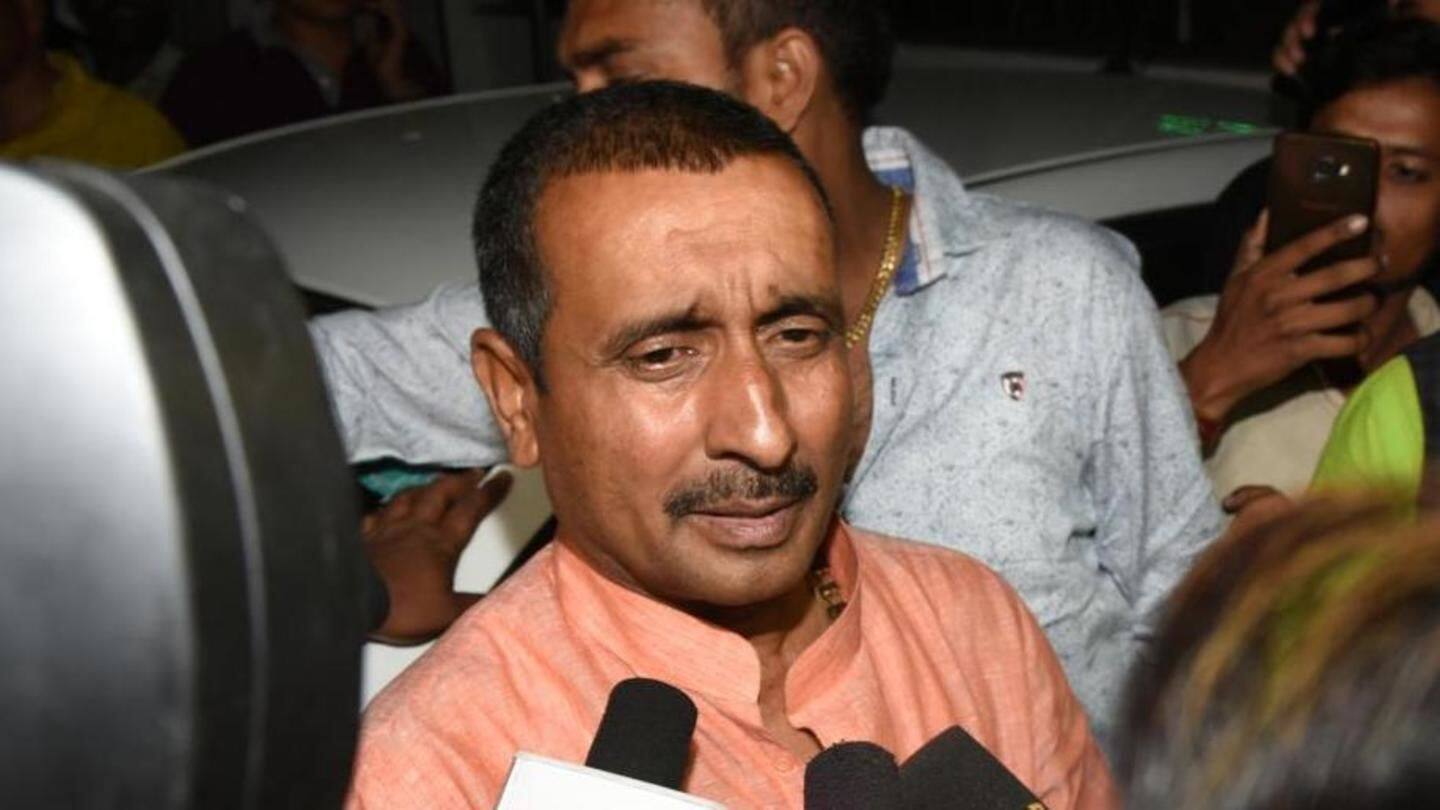
Unnao rape: CBI files chargesheet against MLA Kuldeep Sengar
What's the story
The CBI has filed a chargesheet against BJP MLA Kuldeep Singh Sengar, the accused in the Unnao rape case. Sengar and his associates are accused of raping a girl, but the case grabbed headlines for more than the crime. The alleged incident that happened last year was followed by months of trying to keep the survivor's family quiet. Sengar is currently in prison.
The case
Girl raped, father found dead in judicial custody
Sengar and his aides allegedly raped a 17-year-old girl last year. She reported the crime several times, but no action was taken. In April, she and her family tried to kill themselves outside UP CM Yogi Adityanath's house. Ironically, an FIR was filed against them and her father was arrested. He was found dead the next day in judicial custody.
Inaction
Alleged pressure from high-profile leaders to protect MLA
The case made the news because of alleged attempts by influential leaders to protect the MLA. CBI says several BJP leaders intervened. One called the Unnao SP, asking him not to take action. Police ignored even the CMO's instructions, which had directed them to lodge a complaint. Locals alleged Sengar's aides visited Makhi village and threatened people not to speak up against him.
MLA
Sengar dismisses allegations by "low-class people"
Sengar has maintained he's innocent and said he wants to "cooperate with the CBI." Referring to the victim, he said, "They are low-class people...This is a conspiracy by my opponents." Despite his claims, an FIR was filed against him on April 12. Soon after, his security cover was withdrawn: four policemen deployed at his residence and three police gunners accompanying him were pulled out.
Status
Victim's statement to be submitted as evidence
The case had been handed over to the CBI after a hue and cry about political pressure on the police; UP Police had acted only after the DSP, local SHO and four constables were suspended. The agency arrested Sengar and others in April and questioned them at length. The CBI has also recorded the victim's statement, which is admissible as evidence.